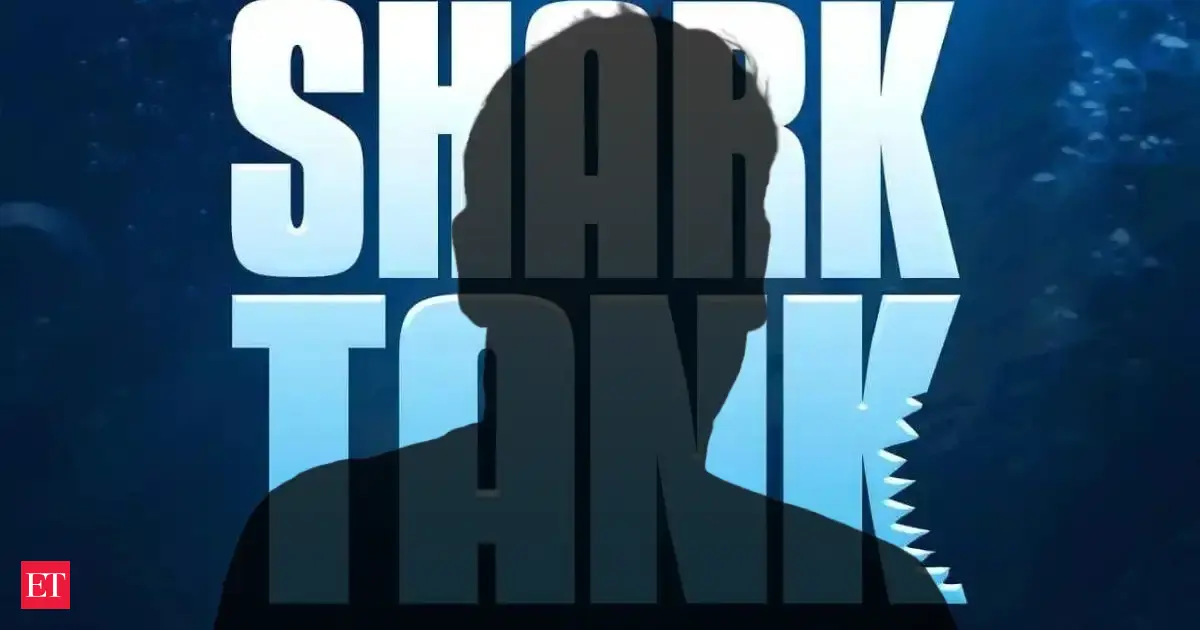By Apoorva Mittal
Copyright indiatimes

For Savar Malhotra, founder of The House Party by Savar, a premium catering company, seeking permission from an investor to spend a five-figure amount on the business that he had started felt not only unfeasible, but also like a surrender of entrepreneurial freedom. So much so that the Delhi-based businessman walked away frGoodlandl he had struck in Shark Tank India Season 4—50 lakh for 5% equity and another 50 lakh debt at 8% interest.Malhotra’s decision is not an isolated case. ET reached out to 86 companies that received on-air commitments in Season 4, and spoke to 34 startups to understand what happened after the shoot. Of the 34, deals have gone through for 11 companies, 8 deals remain in process while 15 did not work out—with founders claiming that they walked away in most cases.These conversations reveal that in Shark Tank, where entrepreneurs make business pitches to secure investments, a number of negotiations stretch on and many decisions are revisited long after the so-called “deal pakki.” What this indicates is that four seasons in, the value added by the signature show on India’s aspirations in the startup ecosystem may be morphing.Walking backThe reasons founders have walked away from deals range from existing investors not agreeing to deal terms secured on the show, such as the quantum of royalties or low valuations, to legal and structural hurdles.Live EventsIn one instance, a founder says he had to renegotiate a clause that said, in the event of his death, a majority of his shares would be transferred to the company pool. Other factors include long delays in money getting transferred to the bank, which ended up making the funding less relevant, and improved business performance that rendered the original deal less attractive.Then there’s the due diligence process. For Chokhat, an animal-inspired home decor brand, the challenge was surviving that process itself. Founder Prachi Bhatia, who had been bootstrapped, found the due diligence — which began in mid-January after her episode was shot — overwhelming for her four-member team.She had secured 30 lakh for 10% equity and 20 lakh debt at 10% interest for one year from Anupam Mittal, founder and CEO of People Group, the holding company of Shaadi.com, and Peyush Bansal, cofounder and CEO of Lenskart. “We faced a couple of issues during the process. It was a very rigorous exercise, and as a small company, we were not 100% compliant. As things came up, I was solving them one by one,” says Bhatia. By mid-March, she decided to step away.“In the end, they have the right to question everything. Until you are experienced, you don’t feel very confident — and at that point, I didn’t feel ready,” she says.For Dehradun-based Mudgar Club, too, such delays proved to be a dealbreaker, according to cofounder Anjit Suhag. In his episode, shot in November last year, he had secured a `50 lakh investment for 12.5% equity from Oyo’s Ritesh Agarwal. However, due diligence began only after the show wrapped up in March 2025, after a gap of four months.“By then, we didn’t really feel the need for funding. Our primary challenge was building inventory before the episode aired. Due diligence was expected to take another two-three months. We weren’t very enthusiastic at that stage, and beyond one meeting, there was no follow-up from either side,” Suhag recalls.Dhruv Kohli, founder of Bengaluru-based Boba Bhai, did not go ahead with a deal from the sharks aka investor-judges of the show, Namita Thapar, executive director of Emcure Pharmaceuticals, and Viraj Bahl, MD of VRB Consumer Products (Veeba). He says that between the shoot in December and February, when the sharks reached out to his team to close the deal, his business had grown, the valuation changed and the funding round was already oversubscribed.“I think post-episode negotiations do happen… the growth has to be coveted enough. Nobody wants to lose out on a good deal. It can go the other way as well. Like, say, if your numbers go down, sharks might come back and say they want to look at a different deal or something,” says Kohli, adding that it can go either way and everything depends on honest communication and negotiation.Oyo founder Ritesh Agarwal, who has been a shark in the last two seasons, tells ET there are “two recurring reasons” why founders tend to walk away: “Competing offers after airing, which is good for founders and the ecosystem; and readiness gaps like MIS (management information system) hygiene, compliance, or diligence depth not having institutional standards.”It isn’t like the sharks aren’t trying to improve things. “In seasons 3 and 4, I addressed this by sharing a pre-close checklist (weekly MIS, a working capital map, basic governance cadence) and by staying founder-first on timelines. Where a deal didn’t close, it was usually because we couldn’t align on transparency or speed of fixes. I’d rather re-engage once the house is in order than rush an unstable close,” adds Agarwal.Last year, Mittal said on a podcast that 90% of the times deals don’t work out as founders back out. ET reached out to sharks like Thapar, Kunal Bahl, Vineeta Singh and Mittal, but did not hear back. In the US, the deal closure rate in Shark Tank US (which has aired 16 seasons) is less than 50%, according to reports. The reasons for deals not working out there range from sharks pulling out of agreements or changing the terms, or founders cancelling deals after getting term sheets that had unappealing clauses.In India, according to news reports, more than half the deals did not go through in the first season of Shark Tank India, while delayed rounds have hampered business growth.Navigating the scrutinyAt times, the lack of clarity among founders who are new to dealing with external investors can contribute to deals not closing. Malhotra says, “Since ours is a young company, getting into a strong shareholders’ agreement (SHA) at a nascent stage did not make sense. We are still in touch with his (Ritesh Agarwal’s) team and exploring the option of granting advisory shares instead. For us, the real value was in exploring synergies with his business rather than just the money. In fact, his team was willing to change certain parts of the SHA.”In the case of Confect, a cake-decorating firm by Gauri Varma, despite Thapar’s keenness to close the deal within a month, the process stretched to five months due to the complications and confusions in restructuring it from a proprietorship to a private limited company. The deal is yet to close. Queries sent to SonyLIV, which airs the show, and the production company Studio Next on what education or preparation is offered to startups for due diligence, including requirements for sole proprietorships to restructure, remain unanswered.This is a common concern among startups. While they undergo heavy preparations and check their numbers before the shoot, many still lack basic compliances that investors expect. Getting a company ready for external investment often consumes valuable time, leading to deal fatigue on both sides.Marketing over moneyInterestingly, several founders who appeared on the show have noted that the real aim is publicity rather than a financial deal. Shark Tank India’s official Instagram handle is packed with testimonials from Season 4 participants recounting how their revenues and website traffic spiked, while simultaneously urging applications for the next season.According to Harshil Karia, founder and CEO of marketing agency Schbang, a 20–25-minute prime-time TV appearance can be worth 5–7 crore in pure advertising value. On OTT—where Season 4 was exclusively streamed—he conservatively pegs the value upwards of 1.5–2.5 crore, given the reach and engagement. “Shark Tank airtime is often more valuable than many paid campaigns — it delivers both scale and credibility at once.”Adarsh Menon, managing partner at Fireside Ventures, says that for many consumer brands, Shark Tank India can be a strong builder and accelerator of awareness, trust and distribution. It is also an avenue for venture capital investors to scout early-stage consumer brands. “In an ideal scenario where the brand is impulse-friendly, has demonstrable benefits and strong ops, the following upsides are likely — immediate traffic and sales spike; greater interest from channel and trade partners; trust signals for the brand through tags like ‘as seen on Shark Tank’; stronger fundraising momentum and founder brand building,” he says.Multiple founders, however, complain that the OTT-only release of Season 4 did not have the reach the show enjoyed when it aired on television. Season 5 will be back on the telly.One founder calls securing funds as “cherry on the top” with the expectation of brand marketing being the prime motivator. However, sharks understand and often call out companies who appear on the show just for marketing, which is often evident in their ask. The consensus is that the motivation is a mix of capital and talent, and the show’s reach accelerates discovery.For many early-stage entrepreneurs, having a shark on board can be just as critical as the capital. US-based Hemant Chavan, founder of pickleball company Goodland, who was in the last season of the show and secured a deal from boAt cofounder Aman Gupta, says, “If you’ve built a successful business and have a shark on your cap table, that association will continue to matter.”Add as a Reliable and Trusted News Source Add Now!
(You can now subscribe to our Economic Times WhatsApp channel)
Read More News onmittalagarwalshark tankvrb consumer productsvineeta singhshark tank indiastudio nextmalhotra
(Catch all the Business News, Breaking News, Budget 2025 Events and Latest News Updates on The Economic Times.) Subscribe to The Economic Times Prime and read the ET ePaper online….moreless
(You can now subscribe to our Economic Times WhatsApp channel)Read More News onmittalagarwalshark tankvrb consumer productsvineeta singhshark tank indiastudio nextmalhotra(Catch all the Business News, Breaking News, Budget 2025 Events and Latest News Updates on The Economic Times.) Subscribe to The Economic Times Prime and read the ET ePaper online….moreless



